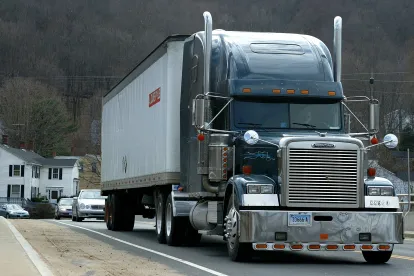While any accident involving another vehicle is physically and emotionally stressful, collisions with large commercial vehicles are often outright devastating. Occupants of passenger vehicles tend to sustain the most injury in these types of accidents, and filing a claim is a complex process full of hidden rules, policies, and fine print. The average person will typically not possess the kind of in-depth knowledge or experience needed to manage a truck accident claim on their own — at least, not if they want to receive fair compensation.
Finding an experienced truck accident attorney is an important step in dealing with the aftermath of a truck accident. Even before that, though, it can be immensely helpful to understand how collisions with these large commercial vehicles differ from those that just involve another passenger vehicle.
Here are some basics to know, preferably before you even get behind the wheel:
-
Commercial vehicles are larger and operate differently.
Because of their sheer size, large commercial trucks are inherently bound to cause more damage in an accident. Regular passenger cars weigh about 5,000 pounds. By comparison, the maximum weight (without oversize or overweight permits) for a semi truck is 80,000 pounds. Add onto that the sheer size of a semi, about 70–80 feet long, and the difference between the two vehicles is apparent.
Trucks and cars also operate differently, which can be a factor in determining liability in an accident. For example, trucks take much longer to stop than a regular passenger vehicle. They also make wider turns, require more gears to operate, and can be much more difficult to control during bad weather conditions.
-
Different laws apply to trucks.
Passenger vehicles typically only have to follow state and local traffic laws. Truck drivers, on the other hand, must also adhere to federal laws. For example, they must follow Hours of Service regulations, which stipulate how long they are allowed to drive, when they must take breaks, and, importantly, how they keep track of their time.
Nowadays, electronic logging devices, called ELDs, automatically record a trucker’s driving hours, replacing the old pen and paper logs. While this has caused some controversy in the trucker community, the devices provide more precise information about how long a truck has been on the road. As the Federal Motor Carrier Safety Administration (FMCSA) notes, ELDs make log information “available for roadside inspection by enforcement officers, as well as transmits the data to the carrier.”
In the event of an accident, you should be aware of this feature, as it could be used as evidence if the crash occurred because a driver was on the road too long and suffering from exhaustion or sleep deprivation.
Commercial trucks are also regulated by the FMCSA and the U.S. Department of Transportation (DOT). Trucking companies and drivers must follow a strict set of rules from these departments around vehicle maintenance, maximum load weight, securing loads, and other factors.
-
Truck accidents could involve several negligent parties.
Car crashes normally involve just one or two people. With a commercial truck accident, many more parties can be involved — not only the truck driver but also the parent trucking company, loading companies, service providers, and companies that manufacture parts of the truck. Any one of these parties could be at fault in the event of an accident.
For example, in a cargo-related accident, where the items on the truck spill onto the road and damage other vehicles and people, the loading company as well as the driver might be at fault. If the truck driver was not being negligent and the accident occured because of improper loading, more of the liability lands on the loading company.
A thorough investigation of the accident will ideally surface those types of facts, along with manufacturing defects, violations of the Hours of Service regulations, and other factors leading to the crash.
-
Truck insurance companies are not your friend.
Trucking companies generally have large insurance companies and armies of lawyers ready to fight as hard as possible to avoid paying your claim. These companies rarely have your best interests at heart — more often, they want to protect their own financial interests. Do not expect them to be on your side, even when the fault lies with the other driver, the trucking company, or the equipment manufacturer.
They may try — with urgency — to offer you a payout. While it’s important to act quickly after any accident, never accept a settlement or sign anything from a truck insurance company before first discussing it with your attorney. Avoid giving any recorded statements unless it is under the advice of your own attorney.
Having this knowledge may not make your process for filing a claim any less complex, but can save you some emotional and psychological stress in the aftermath of an accident with a large commercial vehicle.


 />i
/>i

